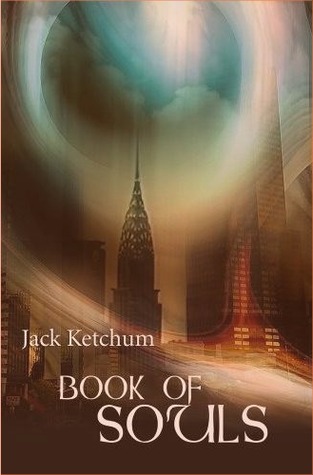 By JACK KETCHUM (2008; Bloodletting Press)
By JACK KETCHUM (2008; Bloodletting Press)
This short nonfiction collection was by Jack Ketchum—who is now, tragically, the late Jack Ketchum, a fact that renders BOOK OF SOULS even more poignant than it was initially. Consisting of four memoirs, it’s a unique entry in the Ketchum cannon, being resolutely wistful and contemplative in tone, albeit with horrific underpinnings that are quite recognizable.
The first piece is “Henry Miller and The Push,” a memoir of Ketchum’s mercifully brief 1970s-era tenure as a New York literary agent, with clients that included his longtime hero Henry Miller. After pushing an old woman to the ground in a rush to catch a taxi, an act that shocked him as much as it did the woman he pushed, Ketchum became determined to quit his job immediately—but not until after meeting his idol face to face. The tale’s final pages lovingly detail that meeting, with Henry Miller registering as “a living fucking saint.” I’ve read other recollections of Miller that paint a far less rosy picture, but Ketchum’s claims are persuasive. Certainly his account demonstrates the enormous influence Henry Miller had on Ketchum’s life and writing, starting with the title of the book under discussion, which was evidently inspired by that of Miller’s BOOK OF FRIENDS.
Next up is “The Dust of The Heavens,” BOOK OF SOULS’ most moving piece (which initially saw publication in the form of a limited edition chapbook back in 1999). It’s more characteristic than its predecessor, being a frank recollection of a longtime friend’s descent into schizophrenia, related in Ketchum’s trademarked pared-down manner (with single-sentence paragraphs predominating). That friend was a fellow named Kenneth, a colleague since 1958, at least until his mind deteriorated and Kenneth turned on everyone around him, Ketchum included.
“Risky Living: A Memoir” initially saw print as the afterword to the Gauntlet Press edition of Ketchum’s second novel HIDE AND SEEK. It’s about a woman who inspired a character in that book, identified in these pages as Jen. She and Ketchum were “lovers of sorts,” with their relationship complicated considerably by the fact that Jen was a voracious drug addict.
Finally there’s “Us Again,” a heartfelt impression of New York City in the wake of 9/11. It commences with an email exchange between Ketchum and his longtime girlfriend, and concludes with the observation that the people of New York “actually seem to care about one another. We’ve at last been reminded that we’re not alone in this Big City nor even on the planet.” I’m not sure I agree with that sentiment, but then, unlike Ketchum, I’m not a New Yorker. I will at least give kudos to Ketchum’s stubbornly optimistic viewpoint, which is quite refreshing and unexpected given that this is the man who gave us OFF SEASON and THE GIRL NEXT DOOR, which aren’t books you’d call uplifting, nor especially optimistic.
